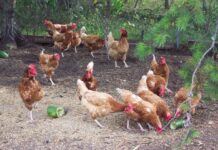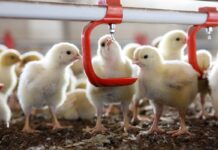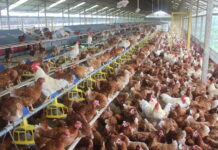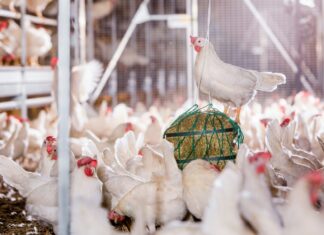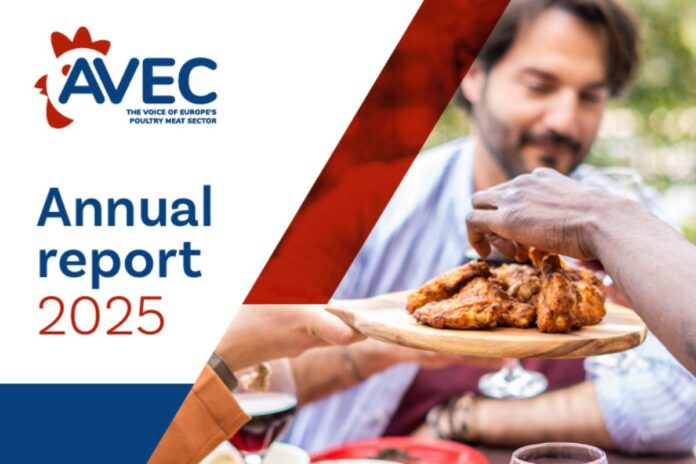
AVEC, the Association of Poultry Processors and Poultry Trade in the EU, concluded its 67th General Assembly last week in Copenhagen, hosted by the Danish Agriculture and Food Council. With the theme “Competitiveness in a Changing World”, the meeting underscored the growing pressures on Europe’s poultry industry and the urgent need for policy responses that support long-term resilience.
A quiet success story under pressure
AVEC President Gert-Jan Oplaat described poultry as one of Europe’s “quiet success stories”: a sector that produces high-quality protein with the lowest carbon footprint among meats, while operating in a circular model that uses every part of the bird for food, pharmaceuticals, pet nutrition, fertilizers, and energy. Poultry is, he stressed, indispensable to Europe’s food security.
Yet despite its efficiency and sustainability, the sector faces intensifying challenges. Imports from third countries such as Brazil, China, and Ukraine are rising, often under production conditions not permitted in the EU. Oplaat warned that a quarter of poultry breast meat consumed in the EU now comes from imports, undermining European producers.
Red tape and demographic challenges
Delegates also highlighted how increasingly complex EU regulations and national “gold-plating” are adding costs and deepening competitiveness gaps inside the Single Market. A further concern is the demographic profile of European farming. According to CEJA’s Sébastien Pérel, only 6.5% of EU farmers are under 35 and just 11.9% under 40, raising alarms about generational renewal. “Without young farmers there is no future for agriculture at all,” Pérel reminded the Assembly.

Mercosur: a breaking point
The EU–Mercosur trade agreement was a flashpoint of debate. AVEC joined a wide coalition of agri-food organisations in warning that the deal fails to reflect Europe’s sustainability model and risks exposing EU farmers to unfair competition. “Our standards, our sustainability efforts, and the trust of EU consumers must not be traded away,” Oplaat insisted, urging the Council and the European Parliament to reject the current proposal.
Closer alignment with EU policy priorities
Amid these challenges, there are signs of a stronger alignment between the poultry sector and the EU institutions. Catherine Geslain-Lanéelle, Director at DG AGRI, acknowledged that the Commission’s new Vision for Agriculture and Food puts competitiveness, food security, and fair trade at the core of its agenda—priorities that closely mirror AVEC’s own. AVEC Secretary General Birthe Steenberg stressed that this alignment opens the door for more evidence-based dialogue: “The more we engage in partnership, the better we can deliver sustainable competitiveness for Europe’s citizens, its farmers, and its environment.”
Looking ahead: facts and competitiveness
To reinforce this dialogue with data, AVEC announced it will publish an updated Competitiveness Study in early 2026. Based on 2024 cost data, the study will extend its scope to turkey and duck production and model the impact of EU legislation and trade policy scenarios. Steenberg emphasized that the study aims to give policymakers the tools to ensure Europe’s high standards remain an asset, not a handicap.
Annual report 2025: strategic priorities
Alongside the Assembly, AVEC presented its Annual Report 2025, which details the sector’s work on animal health and welfare, food safety, sustainability, and trade. Key initiatives include:
-
Promoting science-based approaches to animal welfare legislation, including transport rules.
-
Supporting vaccination trials against avian influenza in several Member States.
-
Advocating harmonised life-cycle assessment methodologies for sustainability reporting.
-
Defending reciprocity in trade agreements to protect EU farmers from unfair practices.
The report also confirms poultry’s central place in European diets: per capita consumption reached 25.1 kg in 2024, while EU self-sufficiency stood at 108%.
Clear message from Copenhagen
From the Assembly floor, AVEC’s message to policymakers was firm: cut unnecessary red tape, enforce fair trade through reciprocity at the border, and support investment in innovation and generational renewal. “We can and want to remain competitive,” Oplaat concluded, “but we need Europe to stand with us. Without reciprocity in trade and a level playing field at home, Europe risks outsourcing its own food security.”
Source: AVEC press release and AVEC Annual Report 2025.


